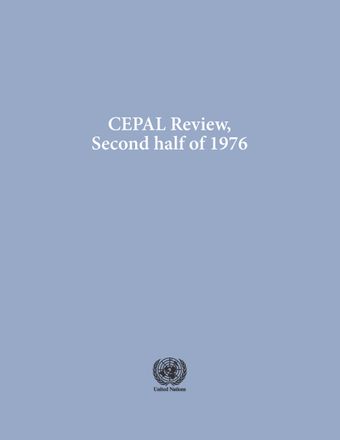-
Latin America in the possible scenarios of détente
- Source: CEPAL Review, Volume 1976, Issue 2, Jan 1976, p. 9 - 92
- Spanish
-
- 06 Jan 1976
- Previous Article
- Table of Contents
- Next Article
Abstract
There are a number of indicators which point to the possibility that some slackening may be occurring in the rivalries between the great powers which may lead to the final solution of the “cold war” and the beginning of a period of stable and lasting international peace. If international relations really are moving towards such a change, then what would the economic, political and ideological repercussions of this development be for Latin America? The author of this essay in social futurology puts this question and, after first of all setting out the salient features of the “cold war”, devotes the central part of this article to an analysis of the effects that such a détente in international relations would have on Latin America. Three different types of possible détente —co-operative, competitive and conflictive — are presented and the implications of each of them are considered with special attention to the likely consequences of the first one. Among these consequences, the author highlights the predominance of cosmopolitan and universalist attitudes in international relations, ideological “decentralization”, the expansion of markets, the weakening of the system of satellites, the prevalence of non-authoritarian régimes, etc. Finally, the autor analyses the repercussions of détente on three key questions in the development of the region: its situation on the periphery, the contradiction between political and economic rationality, and Latin American integration.





